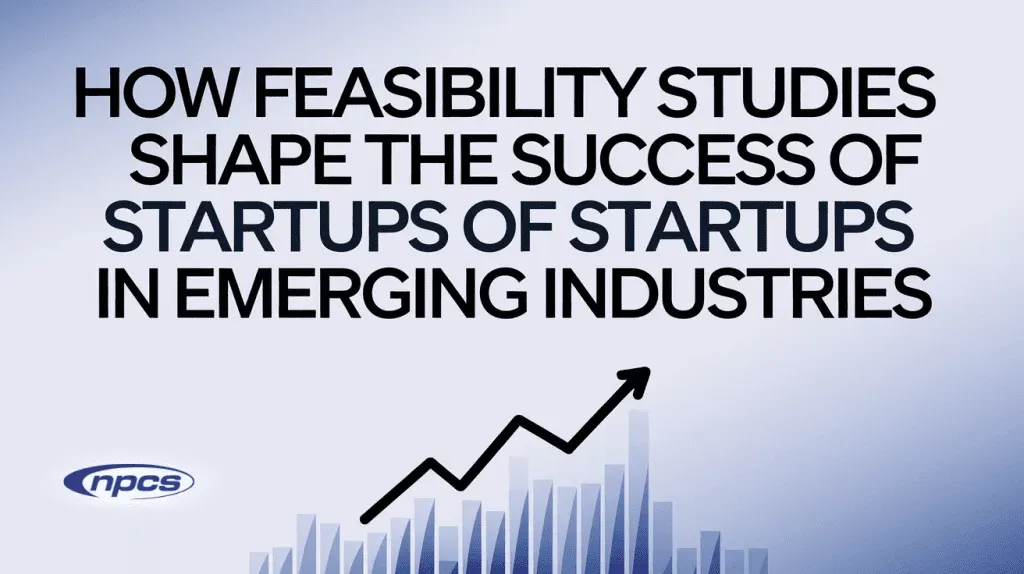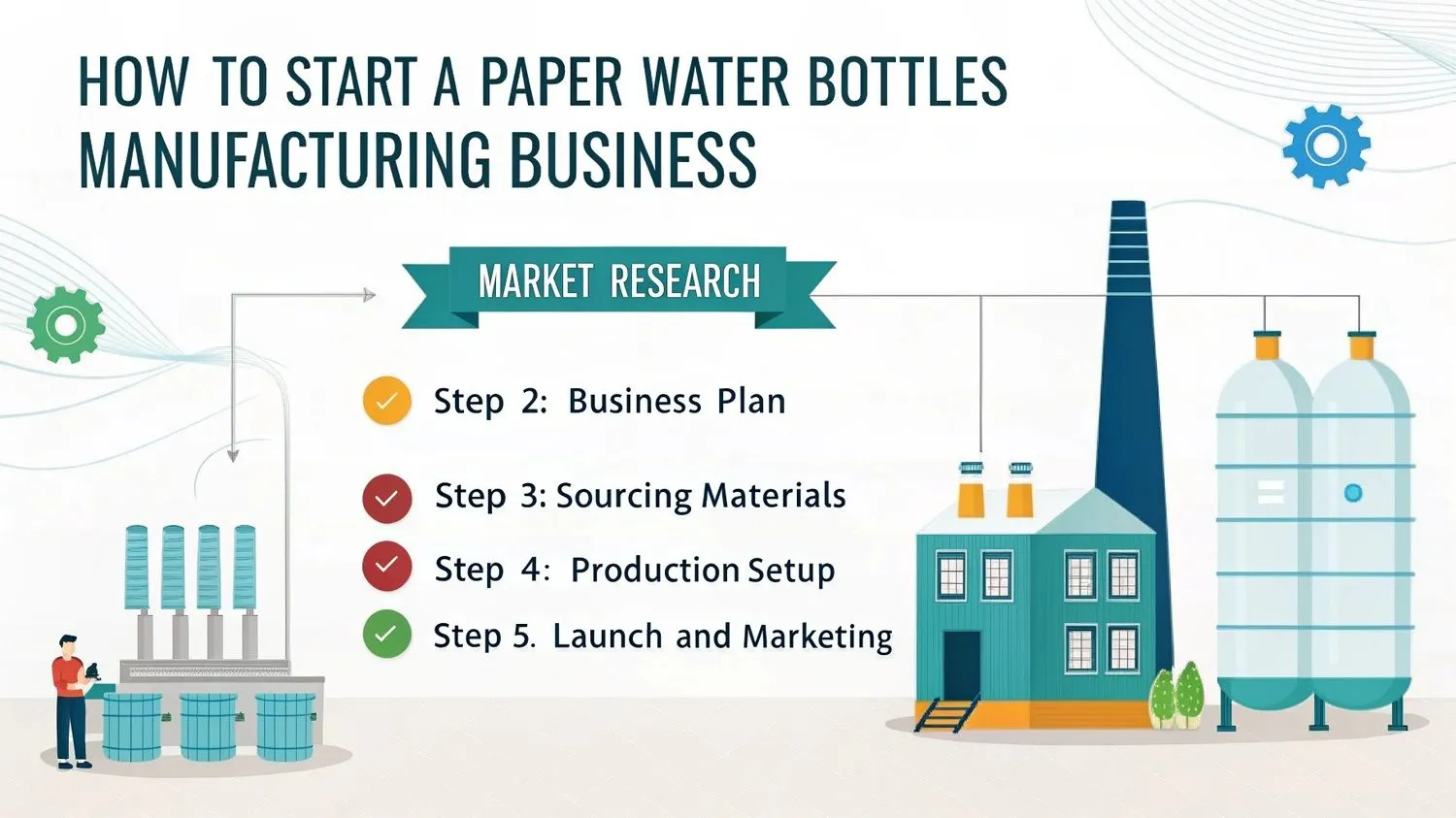Starting up in a new industry proves both exciting and risky; emerging industries typically showcase rapid technological changes and evolving consumer needs. Although much potential lies in these industries, ample risks are always attached to them. However, one of the effective instruments through which entrepreneurs can assess and navigate this uncertainty is what the author calls feasibility study. The study defines the possibility of going ahead with the business idea, thus enabling an entrepreneur to make an informed decision and improve business success.
This article will look at how feasibility studies provide a basis for the success of a startup business. It also explores the much more detailed steps of feasible study and how organizations such as NIIR have been guiding businesses through informed decision making.
Contents
- 0.1 Critical Factors of Startup Feasibility Studies
- 0.2 Steps to Conduct a Feasibility Study for Startups
- 0.3 How Feasibility Analysis Drives Innovation in Emerging Industries
- 0.4 Real-World Success Stories of Feasibility Studies
- 0.5 Benefits of Feasibility Studies for Startups
- 1 Frequently Asked Question
Critical Factors of Startup Feasibility Studies
Analyze the Market Opportunity
This will look at whether a system can run well in the existing market. It will include an analysis of the present market situation, identification of gaps and competition, and prediction of demand trends. Through these, start-ups will develop strategies that will enable their alignment with market needs and capitalize on opportunities.
For example, where renewable energy and artificial intelligence exists, and among others as fast-moving markets, a potential feasibility analysis for start-ups helps identify areas with innovation or improvement of existing solutions, ensuring that start-ups target viable niches without hitting on bad ideas market-wise.
Financial Feasibility Assessment and Risk Analysis
New businesses typically spend thousands of dollars on research, new technologies, and hiring top-notch talent. A feasibility study allows a startup to gauge its cost estimates, the sources of revenue it is likely to generate, and the type of funding it would need to draw. Thus, it can anticipate problems and allocate its resources well by analyzing the financial feasibility.
Moreover, such studies identify potential risks such as regulatory hindrances, technological barriers, and market volatility. Early migration of these risks prevents startups from making costly mistakes in their ventures.
Resource Allocation and Strategic Planning
Most of the time, the resources available in a startup organization are limited. Therefore, it is critical that maximum utilization of available resources is done. Feasibility analysis can tell the entrepreneurs that their idea is aligned with the resources available for development. This may include assessing the existing technology capacity, expertise of the workforce, and infrastructure needs before concept development.
Steps to Conduct a Feasibility Study for Startups
1. Project Scope Definition
Clearly define the business opening planned objectives and goals. Specify what the success means and what parameters need to be in place to measure the success.
2. Review the Market
Define the target audiences for the competitors and the market. Apply data to assess whether demand exists for your product or service and what sets your business apart from your competitors.
3. Evaluate Technical Feasibility
Check if the technology, infrastructure, and expertise required to implement your idea are available. For example, a biotech startup must check whether or not it has access to specialized equipment and personnel.
4. Financial Feasibility
Develop a cost analysis that includes startup costs, what costs will be incurred to run the business, estimated future revenues, funding sources, and financial projections for at least the first five years.
5. Legal and Environmental Factors Considered
Determine what the legal and regulatory requirements are. This is especially pertinent for startup companies in healthcare, as they have to comply with many stringent laws.
6. Informed Decision
Summarize findings and determine if to go with, improve, or abandon the business idea. A full feasibility report templates it for execution.
Experts Role in Feasibility Studies
Great work of coming up with innovative ideas is possible by entrepreneurs, but the practical knowledge experts are having ensure good work in a feasibility study. NIIR can offer all this, from project reports to consultancy work, but above all essentials for start-ups. Their databases and insight on many industries bring perfection in credibility to develop complete feasibility studies.
How Feasibility Analysis Drives Innovation in Emerging Industries
Adaptability to Industry Trends
Emerging sectors are fast developing. Thus, adaptation into these new domains can take the lead role in making successful companies. Viable feasibility analysis gives start-ups the heads-up from existing trends and discovers new opportunities for deviations.
An excellent example of this is the development of electric vehicles technologically intense and awareness of their environmental benefits are exponential. Startups moving into this direction can look into feasibility studies to look into market entry points, charging infrastructure needs, and potential partnerships for renewable energy.
With such insights, businesses can top themselves as the leader of industries and keep team relevance through gradual changes or shifts in trends.
Improving Stakeholder Confidence
Investors, lenders, and borrowers will be quick to support a startup when a comprehensive feasibility study has been conducted. This stipulates a well planned growth path and good intention in conducting due diligence.
A startup should be using such studies to communicate with data how AI-driven farming solutions are going to be beneficial to the agritech audience. This adds credibility as well as confidence from would-be investors that might not be familiar with the power of the technology.
Creating an Sustainable Business Model
Sustainability is a very important concern of today’s business trend, especially in areas like green technologies or circular economy solutions, in which new startups have emerged. A feasibility study helps startups understand what exactly their business model is concerning environmental, social, and economic sustainability goals.
Identifying these problems at this kind of early point gives start-ups the opportunity to map out lean operations with minimum negative impact and maximum benefit.
Also Read: Project Feasibility Report
Real-World Success Stories of Feasibility Studies
TESLA-DISTURBER OF ECONOMY IN EV SECTOR
The entire transition of Tesla electric cars from niche to mainstream has been made possible through feasibility studies. Before launching their products, Tesla understood scalability in manufacturing, technology of battery, and consumer adoption trends. Such findings enabled them to bring forth a model that is sustainable and innovative for the company.
BEYOND MEAT, DISRUPTIVE IN THE FOOD INDUSTRY
The findings of the great feasibility studies favorite consumer preferences, production drawbacks, and market voids in plant-based food. Hence, and due to full preparedness, it is ground-breaking, and thus, a household name among earth-friendly alternatives.
Also, Read Our Feasibility Study Reports
Benefits of Feasibility Studies for Startups
Higher Chances of Success Increased
An all-encompassing feasibility study reduces uncertainty by providing data-derived accounts about all the facets of a business idea. Startups really understand the market dynamics and the operational challenges they face are far more optimistically positioned to thrive.
Reduce Operating Costs
Identifying possible obstacles early enough saves a startup from wasting its financial resources on unviable projects. Not only does this save on money but also time is spent seeking profitable opportunities otherwise things might have been wasted.
Strategic Partnerships
These types of studies often reveal cooperation avenues with other businesses or government and research bodies. These types of studies thus can hasten innovation from startups as well as provide them with a competitive advantage.
Be Confident to Start Your Feasibility Journey
For startups in developing industries, conducting feasibility studies is not an option but a must. This paves the way for entrepreneurs to build a solid foundation for long-term success by understanding market needs, analyzing financial viability, and taking risks.
Start that entrepreneurial dream you always wanted today. A successful startup begins with executing a well-thought-out feasibility analysis.
Contact Us
Frequently Asked Question
What is a feasibility study for startups?
A feasibility study is an analysis that evaluates whether a business idea or project is viable, profitable, and sustainable before committing capital and resources.
Why is conducting a feasibility study important for startups in emerging industries?
It helps identify market demand, technical and financial feasibility, risks, costs, competition, and regulatory factors so founders can make informed decisions and avoid costly failures.
What key components are included in a feasibility study?
Key components are market analysis, technical feasibility, financial projections, management and operations review, risk assessment, and legal or regulatory compliance review.
When should a startup conduct a feasibility study?
Startups should conduct it early, before finalising a business plan, raising funds, or investing in equipment. It’s often done after initial idea validation and before major financial commitments.















